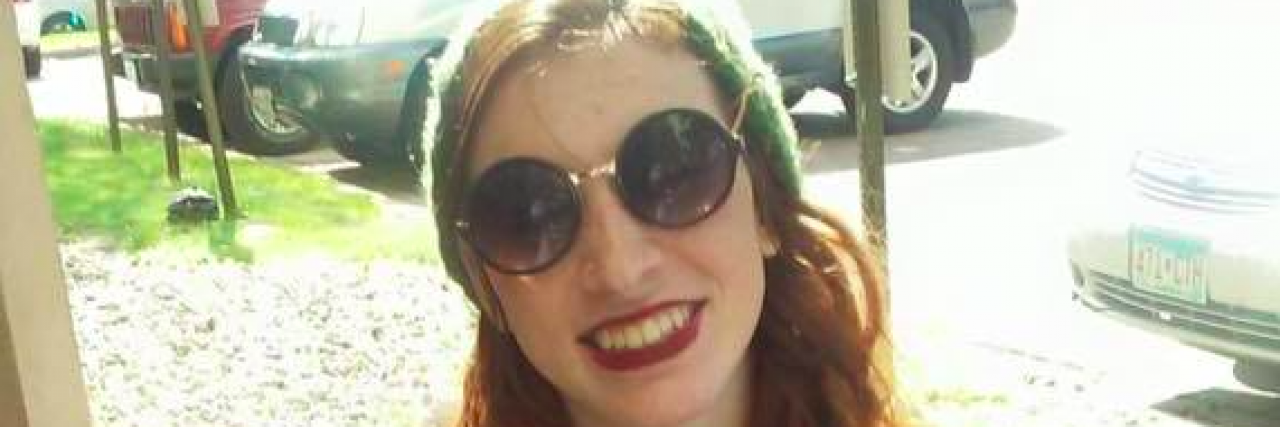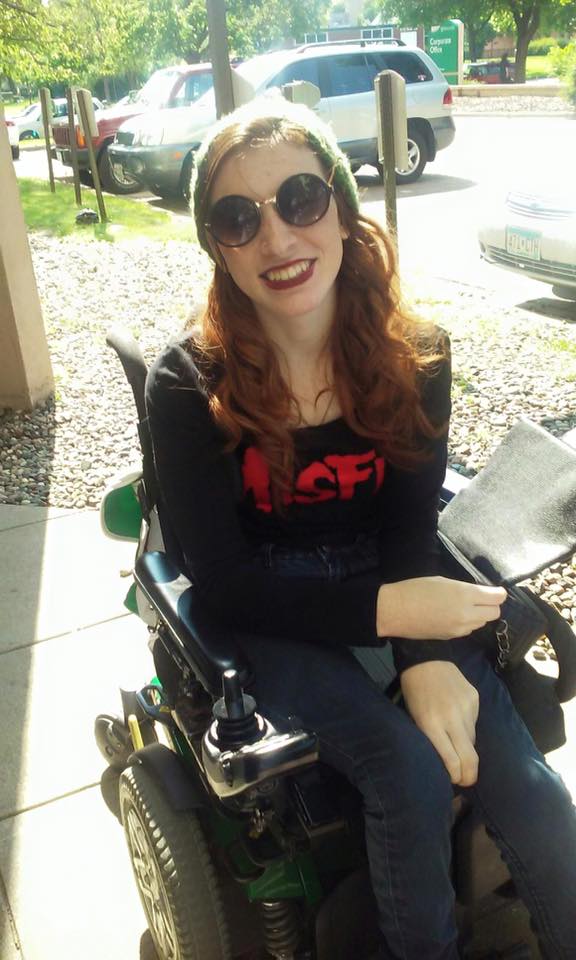My name is Adina, and I have cerebral palsy, PTSD, and major depressive disorder. Often times when it comes to my way of life, even those who know me may be at a loss for words. I wrote this article in the hopes that it will make our dinner conversations a lot less awkward. Starting a dialogue is and always will be an important step in advocacy. Here’s a list of seven things I’d like my friends and family to know about living with disabilities.
1. When I say “I’m tired,” I mean I’m exhausted.
There’s a chance I’ve canceled plans because of this, but it means the world to me when you continue to invite me out, because there will be days where the disabilities don’t win. Asking me out to do things is a way of rooting for me more than you know, and I appreciate it very much.
2. I’m glad your health regime is working for you, but that’s your health. This is my health, and what works for me might be different.
Listen, it’s super cool that you feel as though your yoga instructor and detoxifying waters would really benefit me, and I’m stoked you found something that works for you, but my body is different, and I need my medications like I need oxygen. Please understand and be respectful of this. My body, my existence. My choice. Your body, your existence. Your choice.
3. I am allowed to hate my disabilities.
I am allowed to have bad days. I am allowed to have days where the disabilities win, and I toss up a white flag of surrender in a way that Dido adamantly refuses. I am allowed to hate my cerebral palsy. I am allowed to hate my PTSD. I am allowed to hate my major depressive disorder. Do not mistake my bad days for self-loathing, and for the love of all that is holy, please don’t toss up your complaints about my disabilities in terms of our dynamic. I know being a loved one has its difficulties, but if you think having me in your life is burdensome, you should try living as me sometime. I’m just sayin’.
4. Inclusivity is far more than introducing me to your other friends.
It is making sure I get ample notice to schedule my rides in time, and knowing you don’t mind picking me up before we go somewhere. It is making sure the place we’re going is accessible, or a phone call and a game plan in regards to the new venture. If you forget about my wheelchair, you are forgetting a part of me. Don’t take offense when I shut down plans due to inaccessibility. If I feel as though my wheelchair is going to speak for me the majority of our outing when all I really want to do is spend time with you, it’s not going to be a good time. If you don’t show care of my basic needs, you are showing me that my needs aren’t that important to you.
That said, sometimes sh*t happens, and I may need help parking my chair in order to take a piss, or I may need attractive gentlemen to assist me in getting my chair up a set of stairs like the Queen of Sheba. So long as you’re ready for a little bump in the road and don’t regard it as that big of a deal, neither will I.
5. Sometimes I feel like a burden to you.
And I will want to talk about it. These conversations are awkward, painful and awfully important. Chances are, I will say something off-handedly. Like, maybe I heard you talk about how you used to help me get my shoes on in the morning, or maybe my wheelchair was a really big pain to get out of your truck. Perhaps I drunkenly ran over your foot? Who knows? But it’s important. I do not want to be anyone’s obligation. I do not want to be anyone’s path to redemption. I want to be your friend. I want to be a part of this family. I want to know there are pieces in my life bigger and louder than the ones that society has deemed unlovable. I want to know I should not say thank you for loving me. That I am worthy of love and a place within this home, this social circle, this life. So let’s talk about it. Please.
6. My disabilities do define me (in some aspects of my life).
I am an artist. I am your friend. I am your sister. I am your daughter. I also happen to have four disabilities that stop me from doing certain things. I do not have the same rights you do. I cannot do everything you can do “just in a different way.” I am disabled, and not because my needs are different, but because society at large deems these needs as not important enough to meet. I cannot have spontaneity in the way that I yearn to as a typical 20-something. I go through doctors the way you swipe left on your Tinder profile.
I am not ashamed in living this life of difference. When you say you don’t see my disabilities, I know you actually mean, “I see the person you are with these disabilities,” but when you use phrases like, “You’re just differently abled” or “I don’t see the wheelchair,” it kind of makes me want to throw up in my mouth a bit. You’re basically saying, “I don’t see the discrimination you face every day.” Even though you and I know you mean differently.
7. Know that I’m ready to roll over some toes and kick some a*s whenever you need.
Seriously. Just call me up. I’ve got this.
Image via contributor


